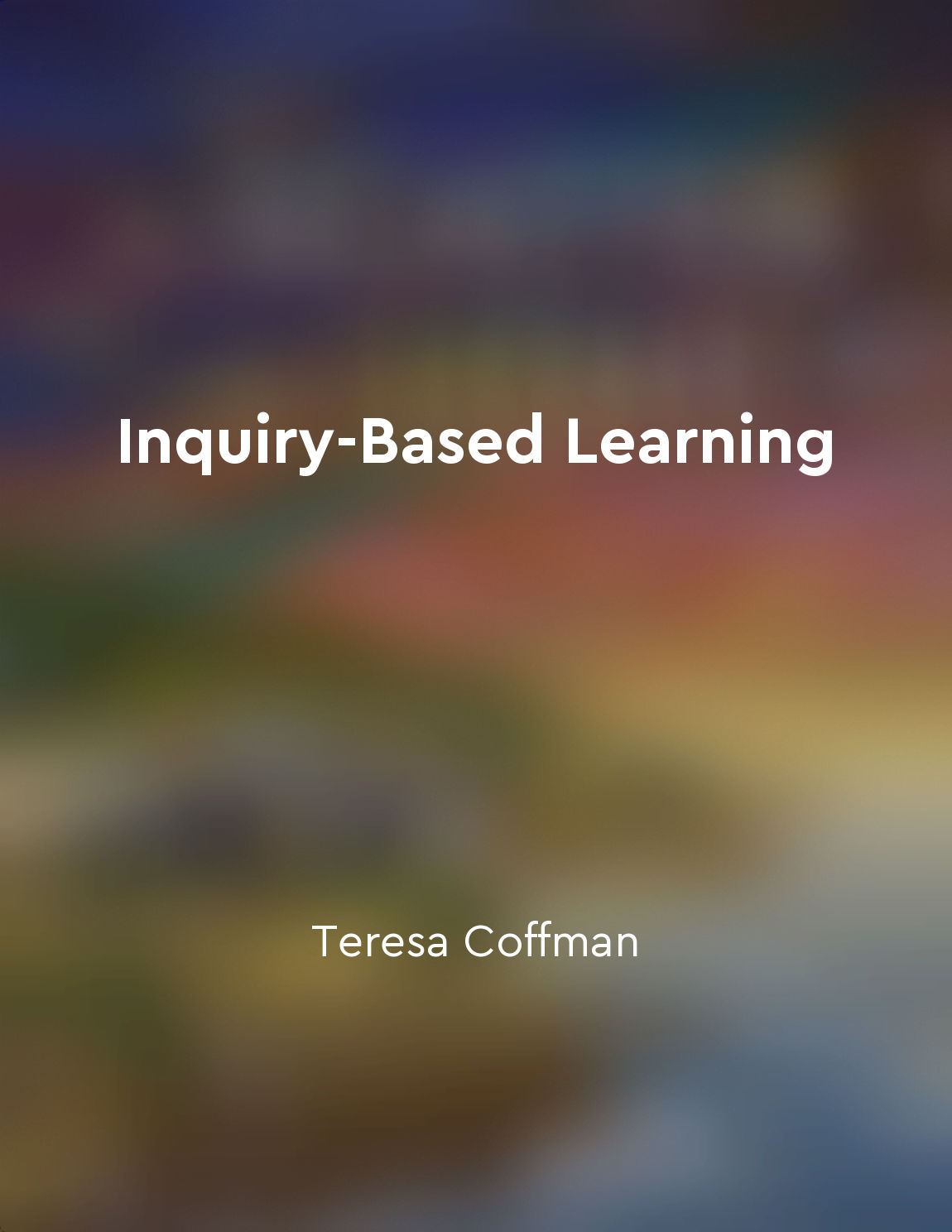Action research fosters inquiry from "summary" of Action Research for Educational Change by John Elliot
Action research is a process that encourages educators to question their practices and engage in systematic inquiry to bring about positive change in their teaching and learning environments. This approach requires educators to critically reflect on their actions, beliefs, and assumptions, and to pose meaningful questions that can lead to improvements in their practice. By fostering inquiry, action research invites educators to explore new ideas, test hypotheses, and gather evidence to inform their decision-making. Through the process of action research, educators are encouraged to be curious, open-minded, and reflective in their practice. They are prompted to question the status quo, challenge existing assumptions, and seek innovative solutions to problems they encounter in their teaching. This spirit of inquiry not only helps educators to improve their own practice but also contributes to the broader field of education by generating new knowledge and insights that can benefit other educators and students. Action research fosters inquiry by providing educators with a structured framework for conducting systematic investigations into their practice. This framework consists of several key stages, including identifying a research question, collecting and analyzing data, interpreting findings, and taking action based on the results. By following this process, educators are able to engage in a rigorous and systematic inquiry that can lead to meaningful and sustainable improvements in their practice. Furthermore, action research encourages educators to collaborate with colleagues, students, and other stakeholders in the research process. By involving others in their inquiry, educators can gain diverse perspectives, share expertise, and generate new ideas that can enrich their practice. This collaborative approach to inquiry not only enhances the quality of the research but also promotes a culture of shared learning and continuous improvement within the educational community.- Action research is a powerful tool for fostering inquiry in educational settings. By encouraging educators to question, reflect, and collaborate in their practice, action research enables them to engage in meaningful and transformative inquiry that can lead to positive change in teaching and learning. Through this process, educators can develop a deeper understanding of their practice, generate new knowledge, and contribute to the ongoing improvement of education for the benefit of all stakeholders involved.
Similar Posts
Plan for smooth transitions
The concept of planning for smooth transitions is essential in maintaining a structured and engaging learning environment. When...

Collaborative inquiry fosters deeper understanding
Collaborative inquiry involves working together with others to explore and investigate a topic or problem. This approach to lea...

Students ask questions and seek answers
The essence of inquiry-based learning lies in the fundamental idea that students are encouraged to actively engage in the learn...
Classroom activities should be designed to promote collaboration among students
Effective instruction involves providing opportunities for students to work together in collaborative groups. This approach all...
Reflection leads to innovation
Through the process of reflection, educators are able to critically examine their practices, beliefs, and assumptions. This int...
Recognizing the impact of emotions on learning
Emotions play a significant role in the learning process. When we feel positive emotions such as curiosity, excitement, or pass...

Inquirybased learning promotes lifelong learning
The essence of inquiry-based learning lies in its ability to cultivate a deep sense of curiosity and a passion for exploration ...

